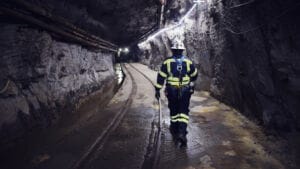Economic development experts in Arizona hope to parlay the state’s convenient geographic location, and even a stagnant housing market, into attracting new businesses.
Toss in relatively low taxes, a freeze on new regulations and a well-honed reputation as a business-friendly state, and recruiters have a tool box full of reasons why businesses should consider relocating to Arizona.
But that’s not all the economic development agencies tout. Local experts know that businesses looking to relocate are interested in those intangible quality-of-life issues: an available and educated work force, a higher-education community that excels in research and churns out highly qualified workers, and a relatively low cost for starting up and doing business.
Television commercials are generally cost-prohibitive, officials say, leading them to rely heavily on the Internet for their recruitment efforts. Feature articles in national trade publications also represent a low-cost way of spreading the Arizona story.
Two of Arizona’s largest economic development agencies — the Greater Phoenix Economic Council (GPEC) and Tucson Regional Economic Opportunities (TREO) — are collaborating on a campaign to lure California businesses to Arizona.
Scarlett Spring, GPEC’s senior vice president of business development, says her team makes targeted trips to California at least once a month, with specific emphasis on the Bay Area, Los Angeles and San Diego. Often, GPEC invites local mayors along to give recruitment efforts an official flavor. Bringing mayors, Spring says, gives recruiters leverage and “opens doors that might not otherwise be open.”
The GPEC message to California?
“Arizona has a business-friendly environment and a reputation of having lowered taxes in some shape or form for 10 consecutive years,” Spring says. “It’s a lower-cost environment for their employees, whether through workers’ comp, competitive wages or health care insurance. Those are the operational costs that a company looks at when considering a financial move or expansion.”
Noting that virtually every phase of running a business is more expensive in California, Spring adds, “What we’re doing is trying to position Arizona as being complementary to the California marketplace.”
DGPEC also invites businesses to Arizona for special events. For example, last November biotech and solar companies from the Bay Area were hosted for a weekend in the Valley. The visit included attending a game between the Arizona Cardinals and the San Francisco 49ers. Two of those companies are close to moving to Arizona, Spring says.
Laura Shaw, senior vice president of marketing for TREO, agrees with the strategy of taking advantage of Arizona’s location. California businesses struggling under mounting operating costs have the ability to move to Arizona and still access California markets.
TREO targets such industries as aerospace, defense, biosciences and alternative energy, and only meets with companies that have been pre-qualified as likely candidates for relocation.
“Research shows that labor drives all market decisions — whether a company can find the labor that fills their needs,” Shaw says. “We focus on matching our assets with a company’s needs.”
Despite the national perception that Tucson is a low-wage community, TREO presses for higher-paying jobs.
What the Tucson area offers is a high-growth Southwestern region situated at the doorstep of California and Mexico, with young talent graduating from the University of Arizona. Tucson is also in the heart of one of the most heavily traveled trucking networks, linking Mexican markets to the California coast.
Meanwhile, the Arizona Department of Commerce, though on a limited basis because of budget cuts, continues to participate in trade shows and foreign direct investment events in Canada, Mexico and Europe. Commerce officials and hired contractors work with foreign companies that are interested in expanding to Arizona. They also help match Arizona firms with foreign customers.
Kent Ennis, interim director of the Commerce Department, confirms that a tight budget makes recruiting more difficult, yet the agency reaches out to major industries, including bioscience and solar. In fact, the Commerce Department led an Arizona delegation to a national convention of bioscience technology companies in Atlanta on May 18.
In addition, the Commerce Department assisted in the relocation of Spain’s Albiasa Solar, which in April announced plans to build a $1 billion renewable solar energy plant near Kingman. The project will create 2,000 construction jobs and more than 100 permanent positions when it is completed in 2013, Ennis says.
The Arizona Association of Economic Development, which is more of a trade organization representing Arizona firms and does not embark on recruiting efforts, nevertheless gets its share of contacts from businesses considering a move to Arizona, says Bruce Coomer, executive director of AAED. But first, he makes sure to sing Arizona’s praises. He mentions the usual advantages, but adds an unlikely twist.
Because our housing market crashed,” he says, “that’s a plus. Now there is affordable housing if a company wants to move here, especially from California. Their employees can really get some bargains.”



